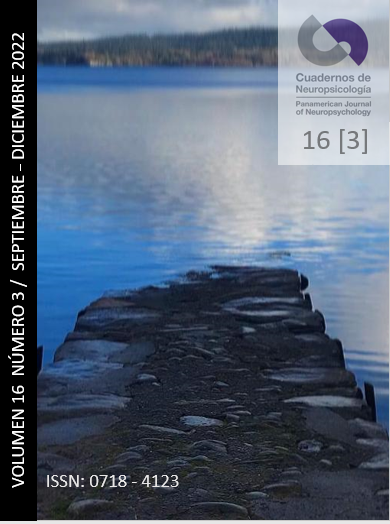¿Un golpe de (mala) suerte? El fenómeno del impostor como desafÃo en la formación cientÃfica de estudiantes de doctorado
Abstract
R E S U M E N
La realización de estudios doctorales puede ser una experiencia altamente demandante y estresante para quienes buscan alcanzar el grado más alto en la academia. Algunas y algunos estudiantes, a pesar de haber demostrado poseer las habilidades y competencias necesarias, dudan de ellas y de sus éxitos, experimentando lo que se conoce como el fenómeno del impostor. Quienes experimentan sentimientos de fraudulencia intelectual, quedan en la encrucijada tanto del miedo al fracaso como al éxito, generando graves consecuencias en términos de salud mental. El presente artÃculo reflexiona en torno a este fenómeno, enfatizando las diversas exigencias del proceso doctoral que alimentan las creencias del impostor, la necesidad de mayores estudios, y la necesidad urgente que las Universidades asuman un rol más protagónico en enfrentar esta experiencia negativa que viven, muchas veces en silencio, las futuras doctoras y doctores.
Palabras Clave: Fenómeno del impostor, estudiantes de doctorado, autoeficacia, publicaciones.
A B S T R A C T
Pursuing doctoral studies can be a highly demanding and stressful experience for those seeking to achieve the highest degree in academia. Some students, despite having demonstrated the necessary skills and competencies, have doubts doubt about their abilities and achievements, experiencing what is known as the impostor phenomenon. Those who experience feelings of intellectual fraudulence are at the crossroads of both the fear of failure and the fear of success, generating serious consequences in terms of mental health. This article reflects on this phenomenon, emphasizing the various demands of the doctoral process that feed the beliefs of the self-perceived impostor, the need for further studies, and the urgent need for universities to assume greater leadership in addressing this negative experience that future doctors live, often in silence.
Keywords: Impostor phenomenon, PhD students, self-efficacy, publications.
R E S U M O
A realização de estudos doutorais pode ser uma experiência altamente demandante e estressante para aqueles que procuram alcançar o mais alto grau acadêmico. Alguns estudantes, apesar de terem demonstrado que possuem as habilidades e competências necessárias, duvidam de suas habilidades e sucessos, experimentando o que é conhecido como o fenômeno impostor. Aqueles que experimentam sentimentos de fraude intelectual ficam na encruzilhada tanto do medo do fracasso quanto do medo do sucesso, levando a graves consequências à saúde mental. Este artigo reflete sobre este fenômeno, enfatizando as diversas exigências do processo doutoral que alimentam as crenças do impostor, a necessidade de mais estudos e a necessidade urgente de que as Universidades assumam um papel mais ativo na abordagem desta experiência negativa que vivem, muitas vezes em silêncio, as futuras doutas e futuros doutores.
Palavras-chave: fenômeno do impostor, estudantes de doutorado, auto-eficácia, publicações
Downloads
How to Cite
Issue
Section
License
Articles published in this journal are protected under the Creative Commons Attribution-NonCommercial-ShareAlike 4.0 International (CC BY-NC-SA 4.0) license. This means that authors retain full rights over their research and publications at all times. As a journal, we fully respect and promote the principles of open access established by this license, allowing the work to be shared, adapted, and distributed for non-commercial purposes, provided that appropriate credit is given to the authors and any derivative works are licensed under the same terms.
Authors are responsible for obtaining the required permission when they wish to reproduce part of the material (figures, etc.) from other publications.
Likewise, CNPs allows authors to host in their personal sites or other repositories that they deem convenient the Final and Definitive Version of the published article with the format assigned by the journal. In no case do we allow access to preprints of the article under evaluation or already published.
When submitting an article to CNPs you are aware that all the contents of CNPs are under a Creative Commons License. In which it is allowed to copy and share the contents freely, always making reference to the origin of the publication and its author.












